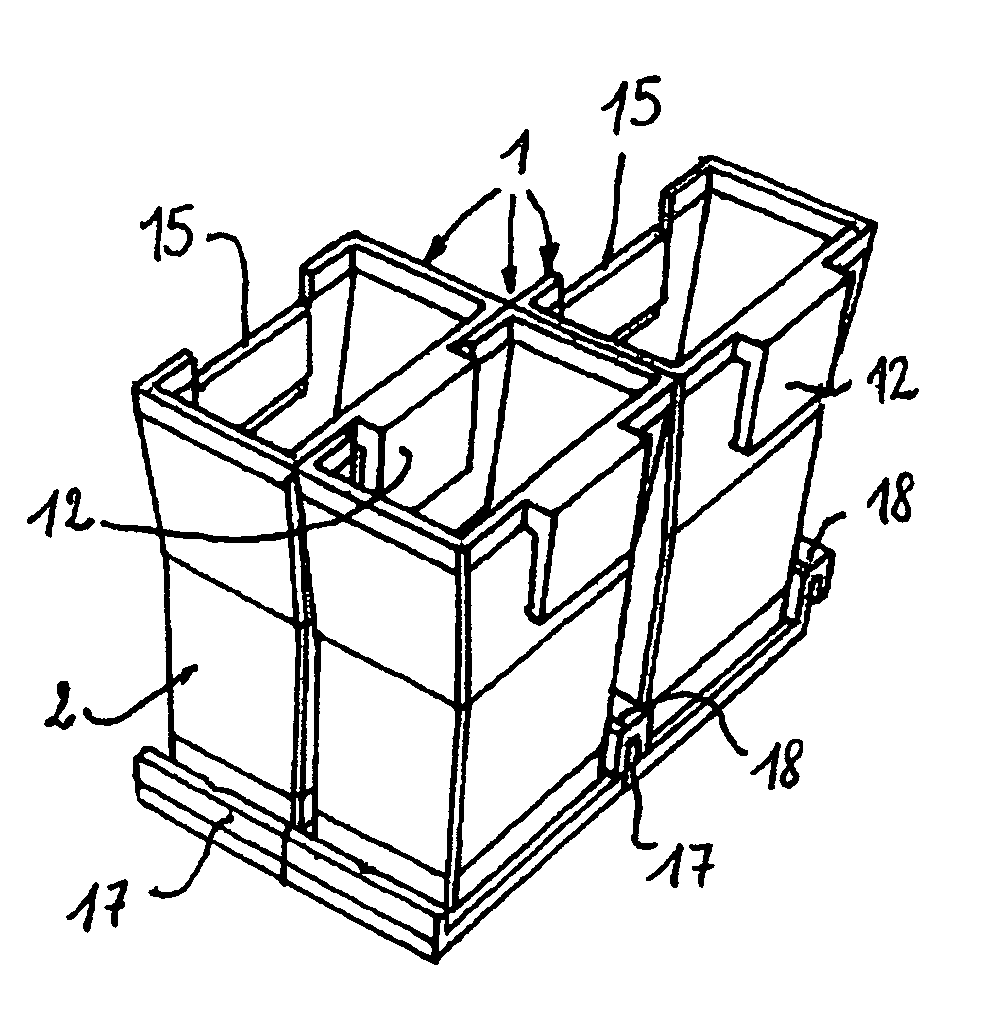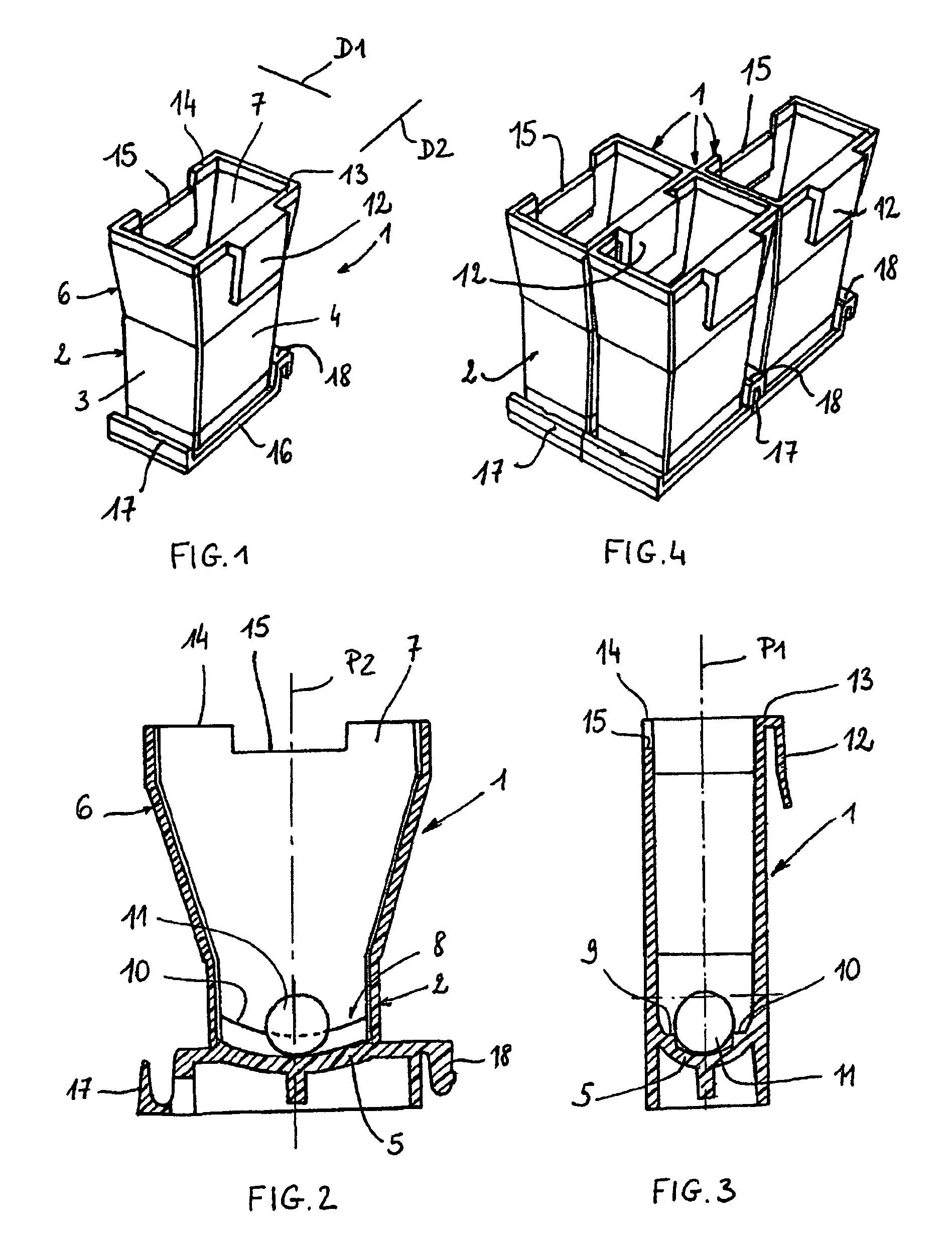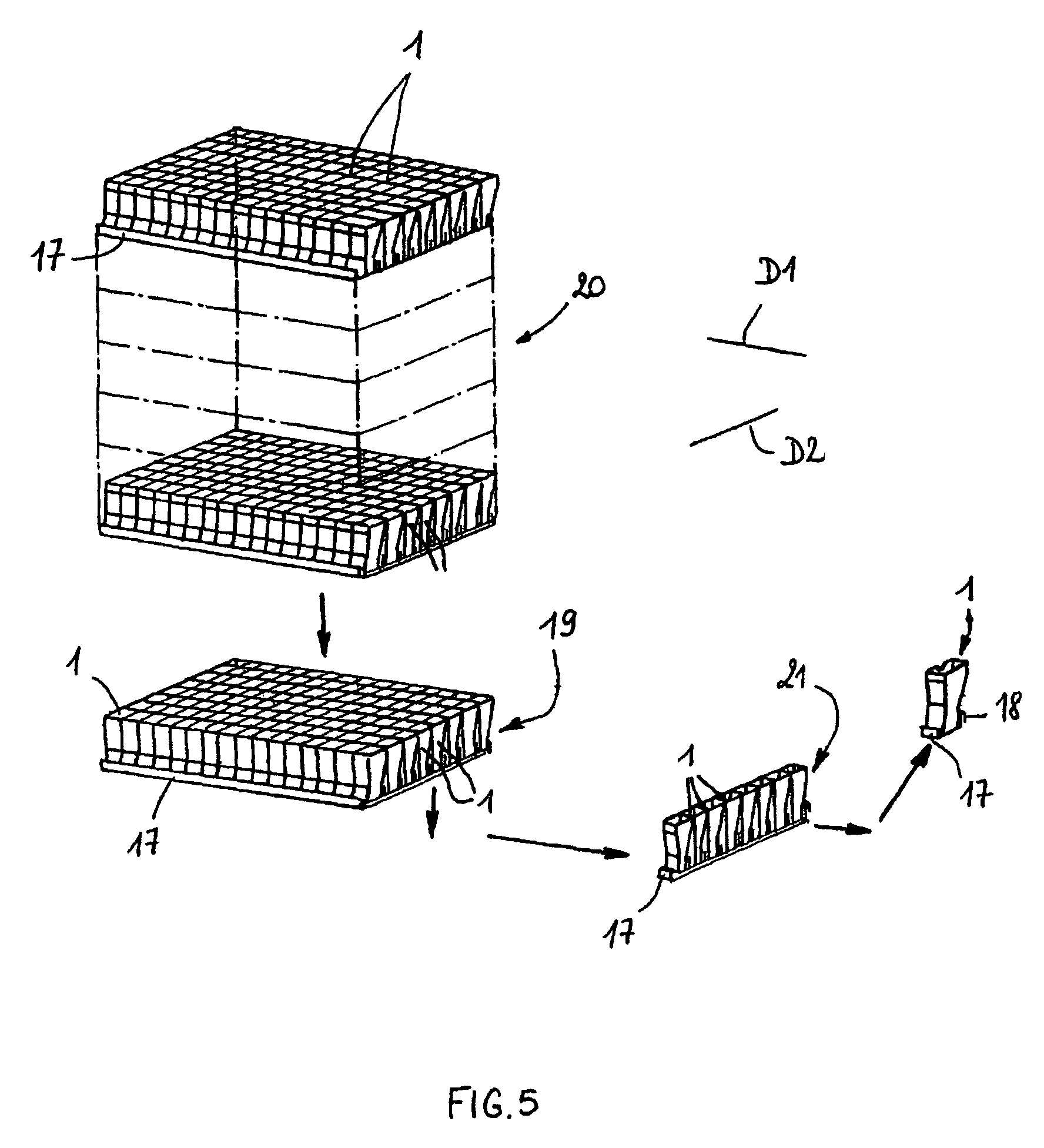Unit cuvette for analyzing a biological fluid, automatic device for in vitro analysis
a technology of biological fluid and cuvette, which is applied in the field of unit cuvette for analyzing biological fluid, and automatic device for in vitro analysis, can solve the problems of difficulty if not impossible to carry out different tests on the cuvettes of a given block, increase the cost of a cuvette, and difficulty in removing such a block, etc., and achieves the effect of convenient detachment, simple and inexpensive manufacturing and maintenance, and substantially reduced operating cos
- Summary
- Abstract
- Description
- Claims
- Application Information
AI Technical Summary
Benefits of technology
Problems solved by technology
Method used
Image
Examples
Embodiment Construction
[0035]As illustrated in FIG. 1, a cuvette 1 has a lower part 2 of approximately parallelepipedal shape, having large faces 3, small faces 4 and a bottom 5. The lower part 2 has a length of around 8 mm and a width of around 4 mm. This makes it possible to obtain a reaction mixture with a minimum volume of 200 μl, thereby limiting the consumption of reactants, while still maintaining optical paths sufficient for the spectrophotometric and turbidimetric (clotting) measurements.
[0036]The lower part 2 of the cuvette 1 is extended by a funnel-shaped upper part 6 flaring out on the opposite side from the bottom 5, in the form of a truncated cone or truncated pyramid, and forming an upper opening 7. This makes it possible to increase the rinsing volume or the reaction volume, to create a wide opening and to make it easier to rinse the nanoparticles for immunology tests. A cuvette 1 having a height of around 22 mm may contain up to 650 μl.
[0037]The transverse direction D1 is defined as the d...
PUM
 Login to View More
Login to View More Abstract
Description
Claims
Application Information
 Login to View More
Login to View More - R&D
- Intellectual Property
- Life Sciences
- Materials
- Tech Scout
- Unparalleled Data Quality
- Higher Quality Content
- 60% Fewer Hallucinations
Browse by: Latest US Patents, China's latest patents, Technical Efficacy Thesaurus, Application Domain, Technology Topic, Popular Technical Reports.
© 2025 PatSnap. All rights reserved.Legal|Privacy policy|Modern Slavery Act Transparency Statement|Sitemap|About US| Contact US: help@patsnap.com



